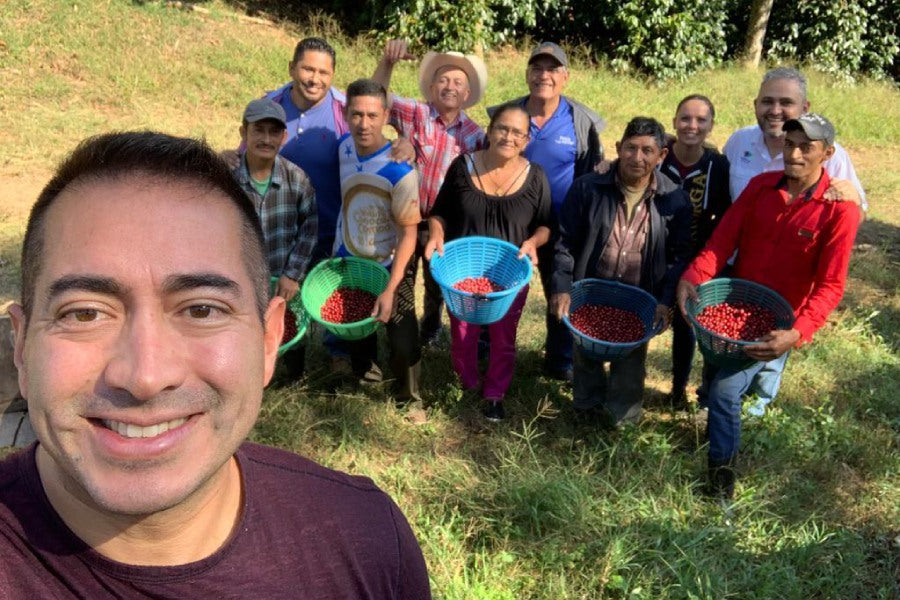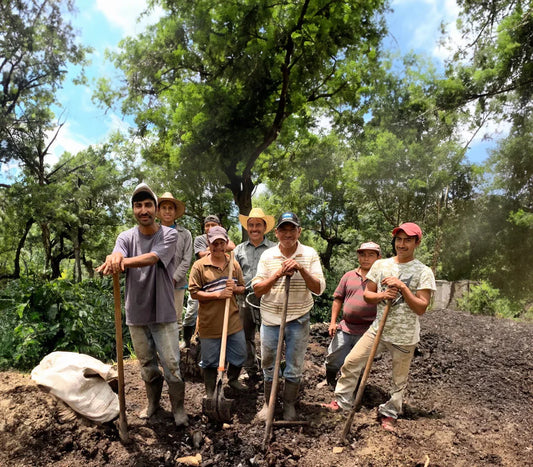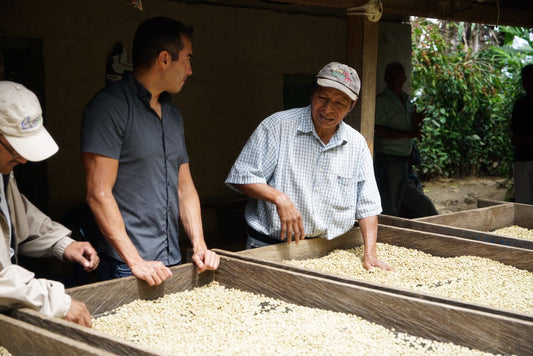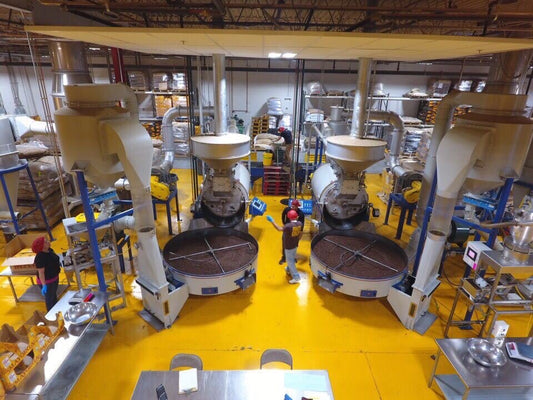
Coffee's Untapped Resource: Why We Need More Latinos in the Coffee Industry
Latino visibility in coffee’s decision-making roles is still low. But a handful of Latino-owned coffee companies are shifting the power dynamics.
Jump to:
Latinos: A Strong Yet Hidden Presence in the Coffee Industry
Latinos love coffee. For many of us, it was what we drank from an early age – typically a sweet, comforting mixture of coffee, milk, and sugar. And, as we grew older, it became a focal point for friendships, an excuse to slow down, and an opportunity to share memories with loved ones.
“The magic of café cubano is that it opens up conversations," says Grace Della, the founder of Miami Culinary Tours. "Café cubano, for example, is meant to be shared. If you're pouring one, you're inviting other folks to come and talk to you.”
Our love for coffee is reflected in the amount we consume. According to the National Coffee Association (NCA), 74% of Latinos based in the US drink coffee daily, while past week consumption of specialty coffee is at 63%.
“A lot of what’s driving coffee consumption – and really growth in many consumer markets – is the growing number of Hispanics in the US,” says Annalisa Fernández, who works as an intercultural specialist.
However, when it comes to US coffee businesses, Latino representation is low. Despite being one, if not the, most important coffee-consuming demographic, just 13% of US coffee roasters are Latino-owned.
This seems strange. After all, most of the coffee imported to the US comes from Latin American countries. And many of us have either grown up around coffee farms or have families that live on them.
Our lack of visibility in the coffee industry means that all the knowledge and first-hand experiences we have is locked away and drowned out by noise from those who are less experienced.
The Latino Struggle for Recognition in the Coffee Industry
The notable lack of Latino representation in the industry, especially at the decision-making level, has wider consequences for the coffee industry.
Yet this trend is an unfortunate result of our world’s history of oppression. It began when European settlers colonized Latin America and developed the “Casta system” – a structure that pre-determined one’s future by placing people in a social category based on race.
Neither colonialism nor this system favored us by any stretch. Instead, many Latinos, especially indigenous peoples, were forced to work endless hours on a variety of tasks, including coffee production.
Hundreds of years later, the racial hierarchy continues to exist within the coffee industry. Of course, it has taken a different, more subtle form. But the reality is that little has changed. People of color, especially Latinos, are still faced with varying levels of discrimination, which hampers their opportunities for growth and success.
Despite the fact that we are the back bone of the coffee industry, both in terms of production and consumption, we are still not appreciated fully or given the credit we deserve.

Latinos Leading the Way: Empowering Entrepreneurs
That said, let us applaud and show our gratitude to our Latino entrepreneurs.
They are tackling these injustices head-on and working hard to transform the coffee industry by amplifying and celebrating the unheard voices and toil of not only their ancestors, but all those who have been marginalized and ignored for so long.
A prime example of Latinos empowering one another is Mayorga Coffee. Our mission since the 1990s has been to eliminate systemic poverty in Latin America through the responsible trade of artisanal organic foods.
Mayorga Coffee is Latino-owned and prides itself on its diverse leadership team. This inclusive environment allows us to build trust with partners (a key component in any industry).
However, it also gives Latinos an opportunity to share their knowledge of the coffee industry, addressing the real issues affecting producers – rather than the issues many think they need to solve. For example, Mayorga Coffee exclusively buys organic coffee after realizing the impact agrochemicals had on local communities.
“Their farm is their home,” says Martin Mayorga, the founder of Mayorga Coffee. “So, when you see them put on spacesuits to go out and spray chemicals onto their land, it’s not hard to put two and two together.”
If more business models similar to Mayorga Coffee’s continue to develop and grow in the coffee industry, it will only be a matter of time before Latino coffee entrepreneurs will rise to the top.
However, the fate of the coffee industry does not solely revolve around coffee entrepreneurs – coffee consumers also have an important role to play.
As consumers, we can support companies and organizations that align with our beliefs and who are transparent about how they are compensating their Latino partners.
Most importantly, we can all continue this conversation about the importance of Latino representation in the coffee industry over coffee. After all, Latinos brew it better.


